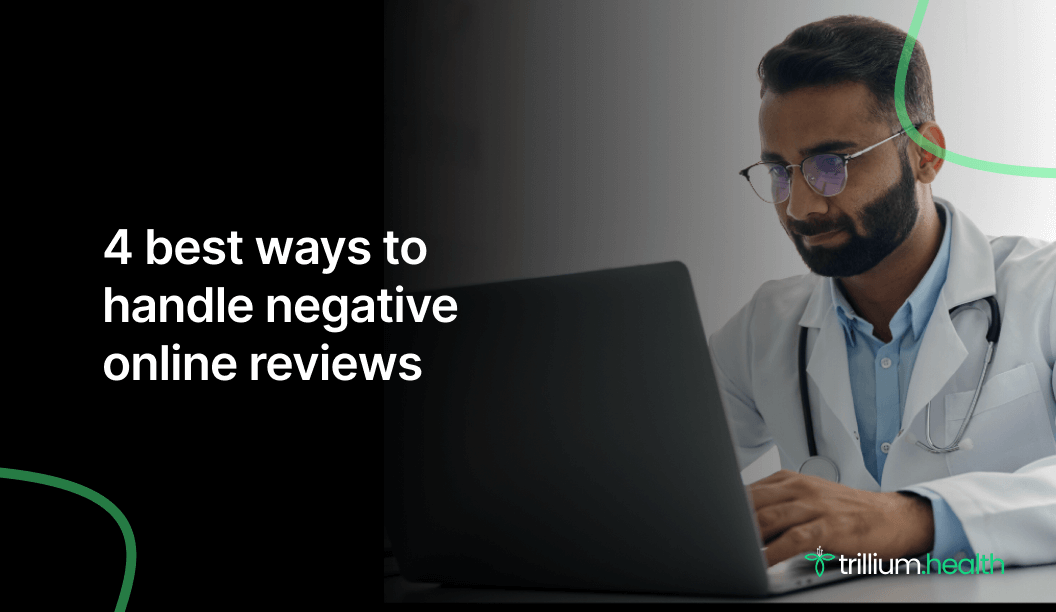Patient feedback is the lifeline of every clinic today, as online reviews from your existing patients build your online reputation. Online reviews have become the most trusted source for the prospective audience.
81% of patients go through online reviews before choosing a healthcare provider. You are missing out on a huge market if you haven’t set up a strategy to collect patient reviews. In addition, responding to patient feedback is equally important.
Responding to online reviews, be it positive or negative, can make a difference in patient engagement. Thanking patients who have left a positive review is one thing; addressing the negative reviews is far more crucial to repairing a relationship.
Negative reviews can significantly impact a healthcare provider’s reputation and discourage potential patients from seeking care. However, responding to negative reviews can help to mitigate the negative impact and turn the situation into an opportunity for improvement.
This Blog Includes:
What is the importance of online reviews?
Online patient reviews have become increasingly important in the healthcare industry as more and more patients turn to the Internet to research and evaluate healthcare providers. It is also important to keep collecting patient reviews and keep them updated, as 50% of patients would not trust a review that is a year old.
For starters, focus on providing the best patient-centered care. With trillium.health, you can automatically collect patient reviews soon after their visit. Patient reviews act as social proof of your practice’s credibility. However, you should not be scared or neglect any negative reviews.
Patient reviews are essential to any practice as it:
- Enhances your online reputation
- Offers your valuable feedback so you can work on your services
- Encourages patient engagement
- Boosts SEO and increases visibility
- Influences prospective patient’s decision
How to respond to negative reviews?
Negative patient reviews can be challenging for healthcare providers to receive, but they can also be an opportunity for growth and improvement. Around 40% of patients expect a reply for their review. Let’s look at how you can respond to negative reviews effortlessly.
1. Dont ignore it; learn from it
Ignoring a patient review can have serious consequences for healthcare providers. Online reviews can influence patient decisions, and negative reviews can harm a provider’s reputation and discourage potential patients from seeking care.
Patient reviews can help healthcare providers identify areas where they need to improve. Negative reviews can highlight specific issues or trends that need to be addressed. Providers can make changes to improve patient experiences by taking note of these issues.
Also Read: Top 5 Healthcare Marketing Strategies
2. Acknowledge the reviewer
The first course of action, when you receive a negative review, is to acknowledge your reviewer respectfully. It’s best to respond to the review within 24 hours. Some tips to follow for your response are:
- Do not be defensive even if you think the reviewer is wrong.
- Be concise and keep it short.
- Be careful not to apologize and stick to HIPPA compliance.
Acknowledging a negative review shows the reviewer that you care about their experience and are committed to addressing any issues they may have encountered. It also helps to build trust with potential patients. It shows that you are transparent, honest, and willing to take responsibility for any mistakes or issues that may have occurred.
3. Verify the reviews and give a generic response
We know how important it is to clear the air and strengthen the patient and public relationship when you receive a negative review. But before anything, verify the patient’s name in your database to check whether the statement is valid.
A key factor to keep in mind before sending out a reply is to stand by HIPPA compliance and not reveal any patient details online.
If you find the reviewer is not part of your database, reply, “Unfortunately, we cannot find any record or recollection of your experience, and we cannot verify your identity in our records. If you were a patient at our practice, please contact us at (insert email and mobile), so we can investigate further and address any issues.”
4. Take the conversation offline
When a practice receives a negative review online, taking the conversation offline as soon as possible is essential. While responding to the review publicly may be tempting, doing so can lead to a back-and-forth exchange that can harm the practice’s reputation.
Taking the conversation offline is essential to protect patient privacy, resolve issues more effectively, demonstrate professionalism, and prevent harm to the practice’s reputation.
To sum up
Not replying to negative feedback can give the impression that the provider is not interested in improving patient experiences, leading to a loss of trust and potential patients.
Healthcare providers need to reply to negative feedback for several reasons. It demonstrates that the provider values and cares about patient feedback and allows the provider to address and resolve any issues that the patient may have experienced.



